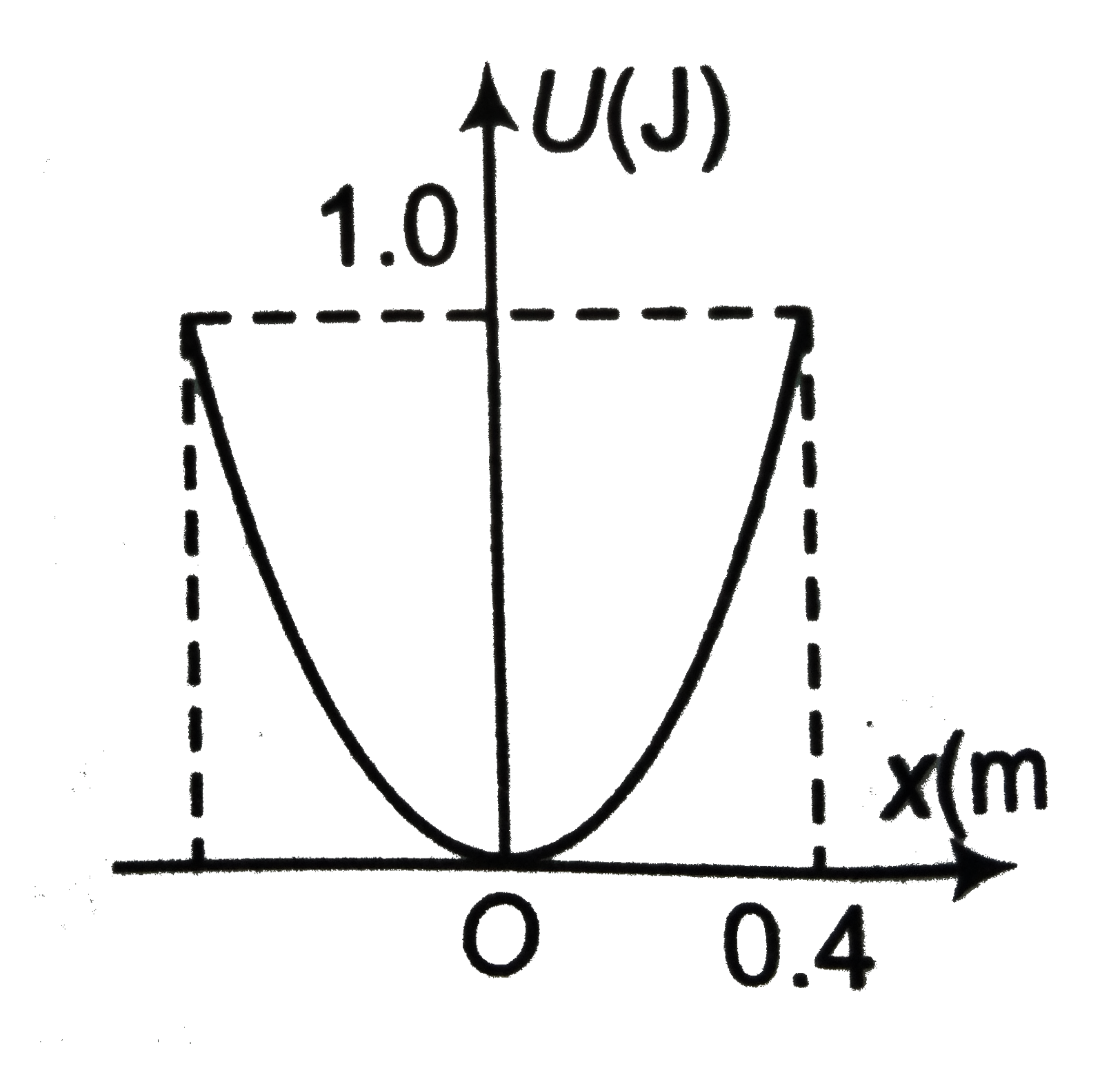The time period of a particle in simple harmonic motion is T. Assume potential energy at mean position to be zero. After a time of T6 it passes its mean position its,
velocity will be one half its maximum velocity
displacement will be one half of its amplitude
Acceleration will be nearly 86∘ of its maximum acceleration
kinetic energy = potential energy
The correct Answer is:A, C
Step by step video, text & image solution for The time period of a particle in simple harmonic motion is T. Assume potential energy at mean position to be zero. After a time of (T)/(6) it passes its mean position its, by Physics experts to help you in doubts & scoring excellent marks in Class 11 exams.
Topper's Solved these Questions
- BOOK - DC PANDEYCHAPTER - SIMPLE HARMONIC MOTIONEXERCISE - Comprehension types18videos
SIMPLE HARMONIC MOTION
- BOOK - DC PANDEYCHAPTER - SIMPLE HARMONIC MOTIONEXERCISE - Matrix matching type questions13videos
SIMPLE HARMONIC MOTION
- BOOK - DC PANDEYCHAPTER - SIMPLE HARMONIC MOTIONEXERCISE - JEE Advanced34videos
SIMPLE HARMONIC MOTION
- BOOK - DC PANDEYCHAPTER - SEMICONDUCTORS AND ELECTRONIC DEVICESEXERCISE - More than One Option is Correct3videos
SEMICONDUCTORS AND ELECTRONIC DEVICES
- BOOK - DC PANDEYCHAPTER - SOLVD PAPERS 2017 NEET, AIIMS & JIPMEREXERCISE - Solved paper 2018(JIPMER)38videos
SOLVD PAPERS 2017 NEET, AIIMS & JIPMER
Similar Questions
A particle is executing simple harmonic motion with amplitude A. When the ratio of its kinetic energy to the potential energy is 14 , its displacement from its mean position is
View SolutionThe time period of a particle executing SHM is T. After a time T/6 after it passes its mean position, then att=0 its :
View Solution
Knowledge Check
- Question 1 - Select One
The velocity of a particle in simple harmonic motion at displacement y from mean position is
Aω√a2+y2Bω√a2−y2CωyDω2√a2−y2 - Question 2 - Select One
The velocity of a particle performing simple harmonic motion, when it passes through its mean position i
AInfinityBZeroCMinimumDMaximum - Question 3 - Select One
The periodic time of a particle doing simple harmonic motion is 4 second . The time taken by it to go from its mean position to half the maximum displacement (amplitude) is
A2sB1sC23sD13s
A particle of mass 2kg moves in simple harmonic motion and its potential energy U varies with position x as shown. The period of oscillation of the particle is
 View Solution
View SolutionThe period of a simple harmonic oscillator is 2 s. If it crosses mean position at an instant. The time after which its displacement from the mean position will be half of the amplitude is.
View SolutionThe total energy of a harmonic oscillator of mass 2 kg is 9 J. If its potential energy at mean position is 5 J , its KE at the mean position will be
View SolutionA particle is executing simple harmonic motion with an angular at a 4cm. At the mean position the velocity of the particle is 10cm/sec .The particle from the mean position when its speed becomes 2cm/s is
View SolutionA particle undergoes simple harmonic motion having time period T. The time taken in 3/8th oscillation is
View Solution

